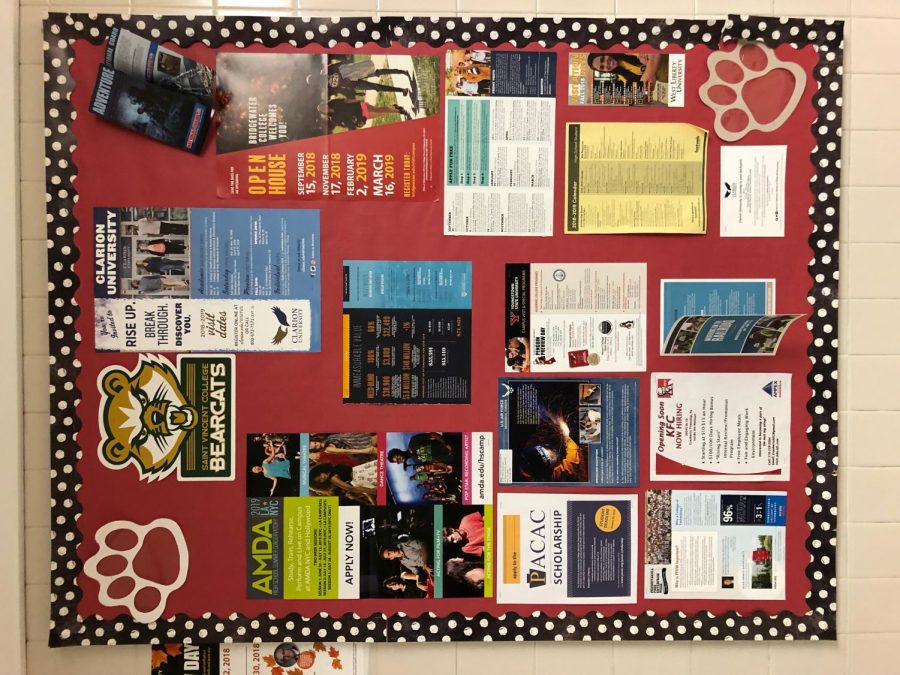Universities begin with U
College is one of the best options for students after high school
This bulletin board is filled with flyers of colleges and additional information for those who are interested. The board can be found on the main floor at the high school.
After high school graduation, many students ask themselves this question: What’s next? To answer that question, many students take the opportunity of going into a college of their choice. However, there are others who do not follow the same path. This leaves a big question for most of society to answer: Do students need to go to college? Here’s the simple answer; it should be considered.
First and foremost, college isn’t the only option for a graduate out of college. In today’s world, there is more than just one choice available to a student willing to gain knowledge in the field of their choice. After all, isn’t that the main purpose of a college?
“I feel like that you should go to a college to become more inclined in an area in which you are interested in,” junior Maxwell Ujhazy said. “Plus, there are many different types of colleges that can concentrate on certain topics and vary in length. No one is ever limited.”
With that being said, almost all jobs require an education greater than the high school diploma. One should always continue their education after high school for the career of their choice. In other words, the learning never stops for anyone.
“I believe that every student should continue the learning process after high school, whether that be attending college, a trade school or training. Although high school provides students with some career readiness, learning more about the specifics of a career is necessary in order to succeed,” Communications teacher Brad Baldwin stated.
Not only will college get you more prepared for the job that one desires, but college will also give a lot of extra benefits to those who deserve it. For example, colleges help with lifetime earnings for any major.
“Post-secondary education is vital for not only securing a job, but also for lifetime earnings,” Physics teacher Brian Wargo stated. “For example, the level of mathematics that you master directly correlates with lifetime earnings, which may be over a million dollars throughout a career.”
Aside from earnings, there is a very easy concept to understand: The more someone learns, the more they will contribute towards a society. The way to learn more about that topic is, of course, from a college.
“Understanding how the world operates allows for more legitimate participation in it. That is, if you understand government, you may decide to run for office; if you understand coding, your chances of working at Google increase; if you know statistics, you may decide to analyze sports for media. In other words, learning new skills and ways of thinking opens opportunities that might not have been possible otherwise,” Wargo said.
All of this backs up why one should consider college. As stated before, college isn’t the only option for students. They should just focus on extending their education after high school. However, even with both sides of the issue, there is one thing that is for certain; one should take advantage of the education offered at a high school level.
“I feel that high school or years before college should be the prime time for finding guidance, especially with all of the free options. So, I recommend taking advantage of that, and possibly diving deeper, even at just the high school level,” Ujhazy said.



